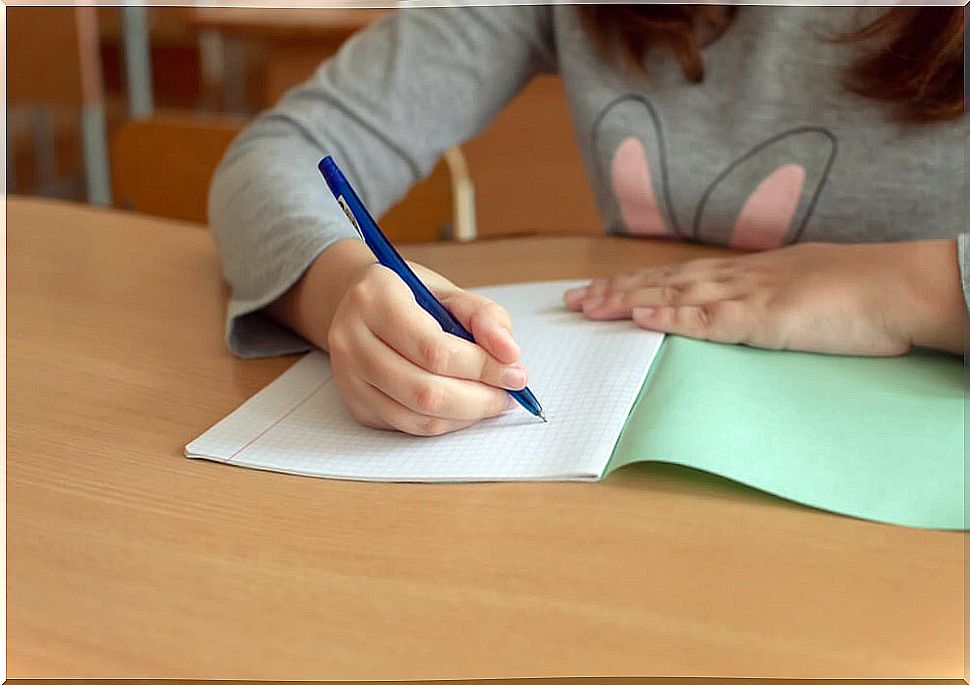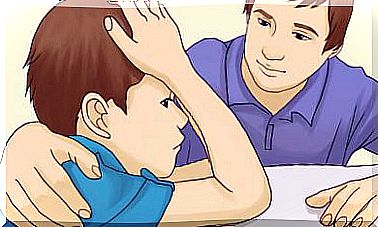Simple Therapeutic Writing Exercises For Children

With the advent of new technologies, children use less and less handwriting. But it has great benefits for your emotional development, especially when used with the right objectives. If you want to know the benefits of therapeutic writing for children, then we will explain them to you.
Therapeutic writing is a simple but valuable emotional management strategy. It can be difficult for children to identify, understand and process what they are feeling in each moment. However, writing opens a door for us to shape our thoughts and get to know ourselves more.
Therapeutic writing exercises for children
1. Gratitude journal
Therapeutic writing can be used for a variety of purposes. One of the most necessary is to help children develop an attitude of gratitude towards life. Gratitude is one of the strengths highlighted by positive psychology for a fuller and happier existence.
If we teach a child to grow up with this quality, we will be giving him the gift of always being able to find the kind side of life, of people and of himself.
To achieve this, one of the most useful and simple exercises is the gratitude journal. It consists of the child having a notebook or notebook in which, each day, they write down three aspects for which they feel grateful. This exercise can be done in the morning, before going to school, to start the day with a positive attitude, or at night, before going to bed, to remember all the good things your day had.

They don’t have to be great things; You can be grateful because the day dawned sunny, for the delicious food that Mom prepared or for the good time she had playing with her friends in the park. Recognizing the value of these small everyday situations will promote optimism and a sense of fulfillment in the child.
2. Managing emotions
Therapeutic writing can also be of great help in processing negative emotions. The coping strategies that we develop to face painful experiences determine to what degree they will affect us. Therefore, it is essential that children learn not to run away from emotions, but to accept and manage them properly.
When they find themselves going through an adverse situation, encourage them to write about how they feel for 10 minutes each day. That they express in writing, without fear or limitations, everything they experience, what angers them, what scares them …
This will help them to take all their emotions for granted and not hold them back inside. In addition, if they wish, they can share their writings with you so that you can guide them on how to act on it.
They can do this exercise every time they need to deal with an emotional state of sadness, anger, anxiety, frustration. .. For example, when they fight with a friend, when they fail an important exam, and it can even help them to grieve over the loss of a loved one.

3. Other therapeutic writing exercises for children
- Each morning, write down two reasons why your day is going to be beautiful, special or enjoyable. Write down two events of the day that you are looking forward to happening. This will foster a positive and optimistic attitude.
- At the end of the day, write how it happened, twice. The first, focusing on the bad, and the second, noting only happy events. With this exercise we encourage the little ones to understand that there will always be something negative, but also something positive. It is up to us to choose what to focus on.
- Self-esteem journal. It consists of the little one writing a positive adjective about himself every day and accompanying it with the narration of the situation. For example: “I am a good friend because I have helped Pablo with a task that he did not know how to do” . Or “I am brave because I have dared to speak in public in front of the class even though it scared me . ” Let us remember that self-esteem is not built on empty flattery, but on the basis of children taking on and overcoming challenges.
In short, therapeutic writing is a simple and very beneficial tool. We can use it both to promote positive emotions, to develop healthy attitudes or to manage emotions properly. These exercises are a good way for little ones to get into the habit of interacting healthily with their different emotional states.










